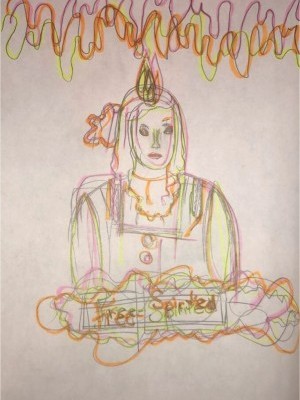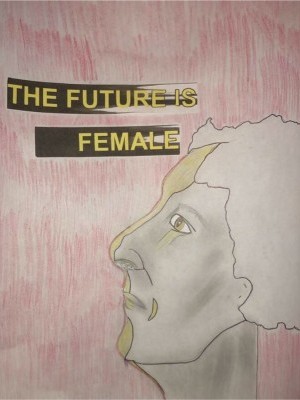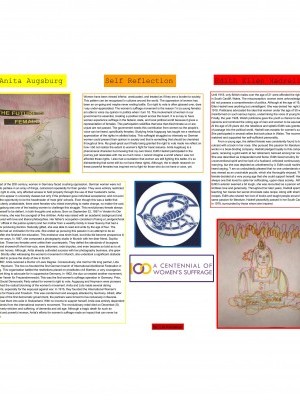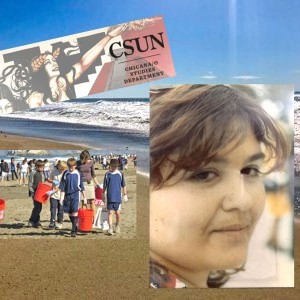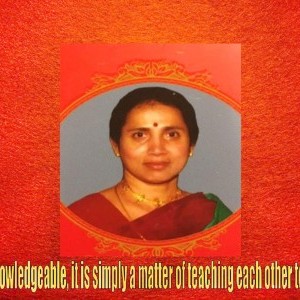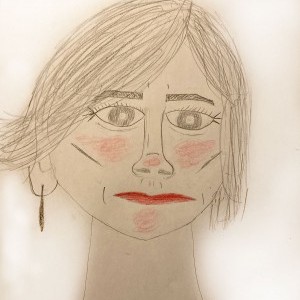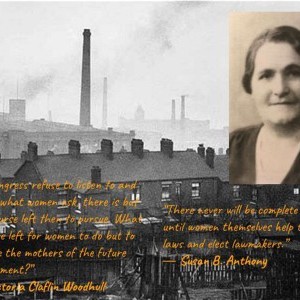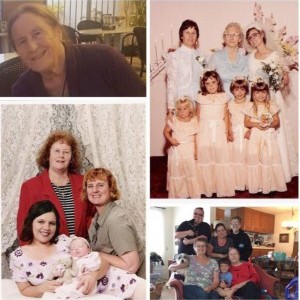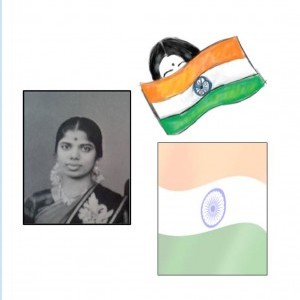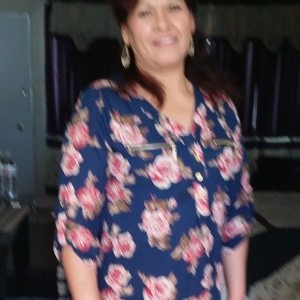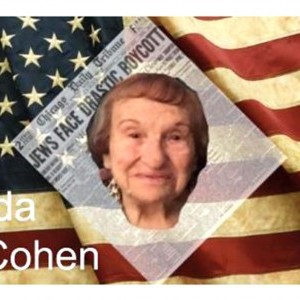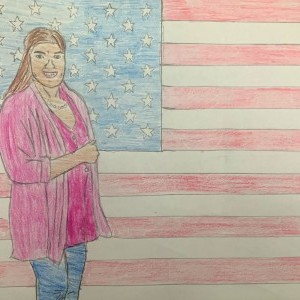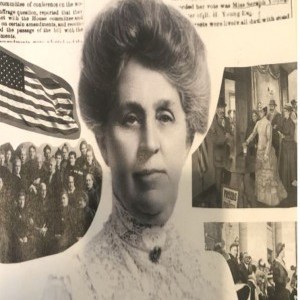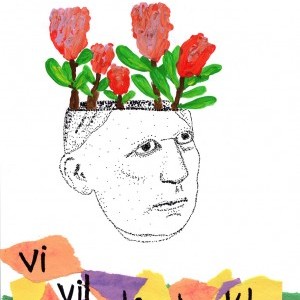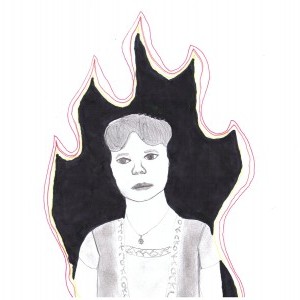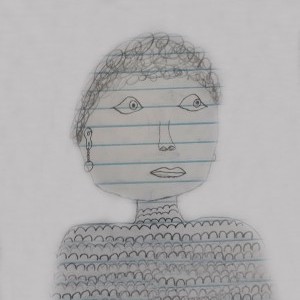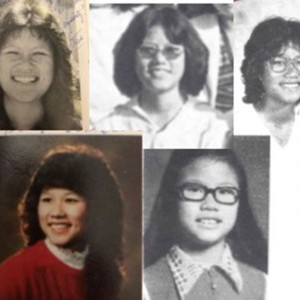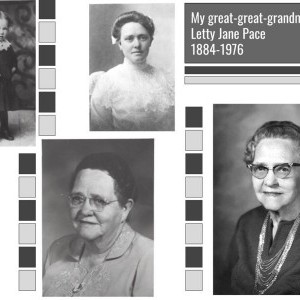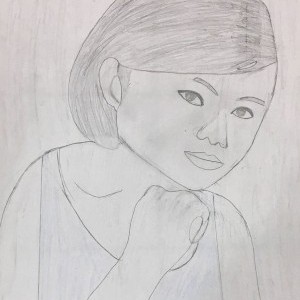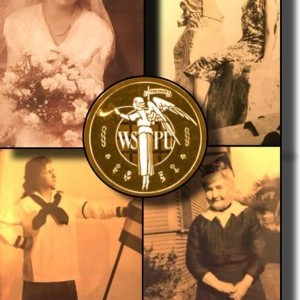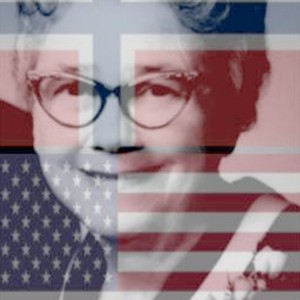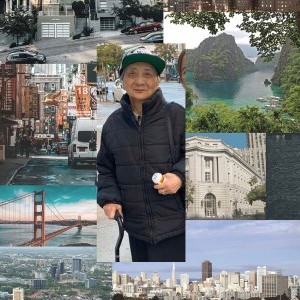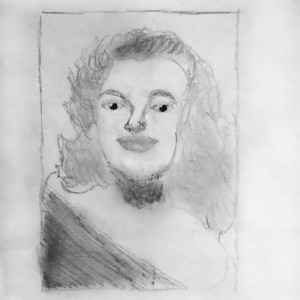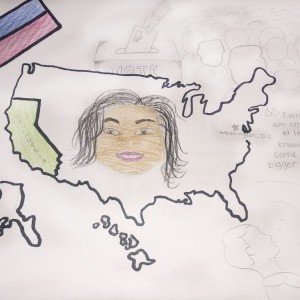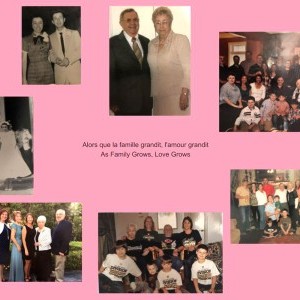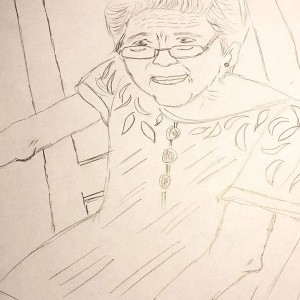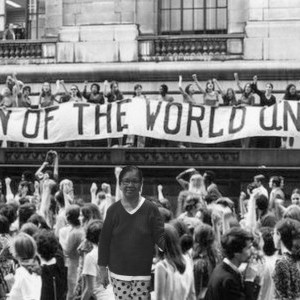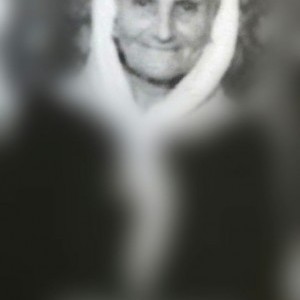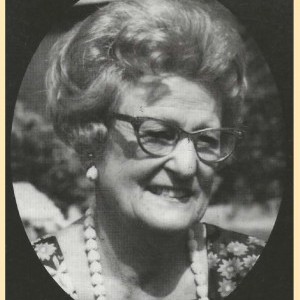Lily Korzelius
Adolfo Camarillo High School | Camarillo, CA | 10th
Inspirational Family Member
My Great-Great-Aunt
Until 1918, only British males over the age of twenty-one were afforded the right to vote in South Cardiff, Wales. The misconception: women were unknowledgeable and did not possess a comprehension of politics. Although, at the age of nineteen, Edith Ellen Hadrell was anything but unintelligent, she was denied her right to vote in 1918. Politicians advocated the idea that women under the age of thirty were misinformed on such serious topics, undermining the voice of young females. Finally, in the year 1928, Welsh politicians gave the youth a chance to declare their opinions and contrived the voting age of men and women to be equivalent, twenty-one. At the age of twenty-nine years old, the rebellious and spiteful Edith was granted her right of passage into the political world. Hadrell was ecstatic for women's suffrage. She participated in several rallies that took place in Wales. The movement matched and supported her self-sufficient personality.
From a young age, the defiant female was consistently found to be the outcast with a book in her nose. She pursued this passion for literature with her work in a book-binding company. Hadrell pledged loyalty to this company for twenty-four years, receiving a gold watch at her retirement, beloved among her coworkers. She was described as independent and fierce. Edith faced scrutiny for her unconventional spirit and her lack of a husband, criticized continuously for never marrying, but she was depicted as unbothered by it. Edith Hadrell could routinely be heard saying, "I am so undoubtedly pleased that no one understands me."
She was viewed as an unsolvable puzzle, which she thoroughly enjoyed. The young lady decided at a very young age that she could support herself. Hadrell was always one that loved to spite her suffocating, upper-class society. Although Edith's exterior seemed a bit tough, she was recounted as a person who had limitless love and generosity. Throughout her later years, Hadrell spent her time teaching her nieces her secret chocolate cake recipe. Along with sharing recipes, Edith also shared her love of books and taught people around her the same love for literature. Hadrell peacefully passed in her South Cardiff home in 1979, surrounded by those whom she inspired
Historical Figure I Admire
Anita Augspurg
At the start of the 20th century, women in Germany faced crushing oppression. German women were not allowed to partake in an array of things, ostracized repeatedly for their gender. They were entirely restricted from the right to vote, only afforded access to hold property through the use of their husband's name, conceded to appear in university classes but only if the professor gave individual acceptance; and not even granted the opportunity to be the headmaster of most girls' schools. Even though this was a battle that seemed utterly unattainable, there were females who risked everything to make change, no matter the cost. Anita Augsburg was one of the leading women to challenge this struggle.
This revolutionary female always proved herself to be defiant, in both thoughts and actions. Born on September 22, 1857 in Verden An Der Aller, Germany, she was the youngest of five children. Anita was raised with an academic background and was nurtured with love and liberal philosophies. Her father's occupation consisted of being a Landgerichsrat (a senior official in the justice system) and her mother from a wealthy family in lower Saxony that had a pattern for producing doctors. Naturally gifted, she was able to read and write by the age of four. The suffragette had an inclination for the arts. She ended up pursuing this passion in an attempt to be an actress after she finished her education. This endeavor was short-lived, but Anita did become prosperous in many other ways. In 1887, she created a photography studio in Munich with her dear friend, Sophia Goudstikker. These two females were unlike their counterparts. They defied the standards of bourgeois women and showed-off short hair-cuts, wore bloomers, rode bicycles, and even became so bold as to sit astride their horses.
Although, Anita already cultivated success with her photography business, she grew restless. Shortly after witnessing the women's movement in Munich, she undertook a significant obstacle and decided to pursue the study of law in Zurich. In 1897, Anita received a Doctor of Laws Degree. Consecutively, she met her life long partner, Lida Gustava Heymann. The two co-founded the first German branch of the International Abolitionist Federation in Hamburg. This organization battled the restrictions placed on prostitutes’ civil liberties, a very courageous and valiant thing to advocate for in suppressive Germany. In 1902, the duo co-created another movement, Deutscher Verein für Frauenstimmrecht: this was the first women's suffrage operation in Germany. Prior to this, only the Social Democratic Party asked for women's right to vote. Augspurg and Heymann were pioneers who marked the radical blooming of the women's movement. Anita and Lida made several daring statements, especially for the espousal against war.
In 1915, they founded the International Women's Congress for Peace and Freedom. This was condemned and savagely attacked by Germany. Afraid, after the collapse of the first democratic government, the partners were forced to live reclusively in Bavaria. Nazis forced them into exile in Switzerland. With no income to support herself, Anita was entirely dependent on her friends from the international women's movement. The revolutionary rebel died on December 20, 1943, poverty-stricken and suffering, of dementia and old age. Although a tragic death for such an influential and powerful woman, Anita's efforts for women's suffrage made an impact that can never be forgotten.
What the Project Means to Me
Women have been viewed inferior, uneducated, and treated as if they are a burden to society. This pattern can be recognized in cultures around the world. The oppression of women has been an on-going and maybe never ending battle. Our right to vote is often glossed over, dare I say, under-appreciated. The women’s suffrage movement is the reason I, as a young female, am able to voice my opinion in politics when I turn eighteen. The involvement of women in our government is essential, creating a positive impact across the board. It is so key to have women experience suffrage in the federal, state, and local political world because it gives a representation of females. This participation solidifies that laws which discriminate against us or are unjust are not passed. The government needs this contribution from women so the people’s voice can be heard, specifically females.
Studying Anita Augspurg has taught me a newfound appreciation of the rights I’m allotted today. This suffragist struggled so intensely so German women could present their opinion in society and that is something that should be cherished throughout time. My great-great aunt finally being granted the right to vote made me reflect on how I did not realize the extent of women’s fight for basic rights. Anita Augsburg is a phenomenal character but knowing that my own blood, Edith Hadrell participated in the journey just resonates with me so much more. I cannot imagine a world where I was not afforded these rights. I also had a revelation that women are still fighting this battle. It’s so disheartening that some still do not have these rights. The in-depth research on these powerful females has inspired me to fight for those who do not have a voice, yet.
Explore the Archive
More From This Class
Click on the thumbnails below to view each student's work.Deadline Extended
There's still time to join Women Leading the Way.
Become a part of our storytelling archive. Enroll your class today.
Join the Project

